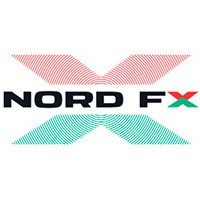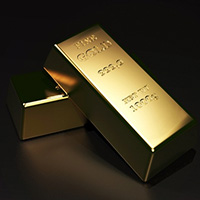Earth’s climate is fragile, but so is the global economy. Climate concerns are dominating hearts and headlines these days, and new eco-friendly technologies and companies are emerging while legacy brands face new challenges. As governments, corporations, and individuals strive to achieve carbon neutrality and reduce their environmental footprint, investors are redirecting their capital towards eco-friendly initiatives. The result is a growing demand for sustainable assets also known as Environmental, Social, and Governance (ESG) investments.
ESG considerations have gained prominence as investors and consumers increasingly prioritize sustainability, ethical practices, and corporate responsibility.
An ESG scoring system has been around since 2004, but only recently gained attention in the investment world. Companies that effectively manage their ESG factors are now considered, increasingly by their own shareholders, to be better equipped to build a long-term future. ESG metrics and ratings are supposedly used by big investors to make more informed decisions and encourage positive change within industries. But is it all just smoke and mirrors, or should you be factoring ESG risk scores into your trading strategy too?
ESG risk-score vs stock price
While the ESG score is considered relevant in the investment world, how the scores are calculated and assigned is unclear. The ESG risk score ranges from 0-100: in theory, a low score suggests the company is eco-friendly, which is supposed to translate to greater trading volume through a more environmentally sound investment choice.
Open up the Exness Trading Terminal and search the provided ticker to see for yourself whether long-term chart trends correspond with the following ESG scores.
- Adobe Inc. (ADBE), scoring a very eco-friendly 13.1, has set ambitious goals to achieve carbon neutrality. Extensive digging online supports the company's impressive ESG score. The company invests in renewable energy projects, uses energy-efficient technologies, and advocates the responsible sourcing of materials. On the charts, ADBE took a hit from 2021 to 2022, but has shown a consistent and substantial rise of 87% since then. So far so good.
- Microsoft Corporation (MSFT), scoring an impressive 15.3, is committed to becoming carbon negative by 2030, investing heavily in carbon capture technology and renewable energy sources to achieve this goal. Like Adobe, Microsoft had a rough time until Q4 2022, when it rocketed 41% to today’s highs. Another correlation between stock values and strong ESG ratings.
- Apple.com Inc. (AAPL), at 17.2, has made significant strides in reducing its carbon footprint and promoting renewable energy, while committing to using 100% renewable energy for its operations. This ESG-friendly company has enjoyed a 205% stock price rise from $57 to $174 since March, 2020.
- Coca-Cola (KO), with a respectable 23.6, claims 90% of its packaging is recyclable. An impressive 57% rise since March 2020, from $38 to $60, supports the eco-friendly ESG score. But here’s where the metric becomes questionable: Coca-Cola was recently declared the worst plastic polluter in the world, by global campaigner Break Free from Plastic. According to the umbrella organization’s 2022 brand audit, Coca Cola was responsible for pumping out 200,000 bottles a minute, an equivalent of 3 million metric tonnes of plastic packaging a year. How it got such a strong ESG score is baffling.
- McDonald's (MCD), scoring 24.2, is responsible for more than 53 million metric tonnes of greenhouse gases each year, exceeding several European countries' emissions. Requests for McDonald’s to report on its eco-friendly, reusable packaging initiative have not been answered, with the company announcing only that it plans to carry out its own study first. The charts don’t show overly optimistic growth, but there’s been a steady rise since 2020.
- Unilever Plc (UL), with 24.6, is one of the world’s largest consumer goods companies, producing over 700,000 metric tonnes of single-use plastic every year. Unilever insists it is dedicated to reducing its environmental impact while promoting social responsibility. It seems dedication is all that’s needed to keep a ESG score healthy. The charts show very little action for UL, so in this case, a low-risk score isn’t translating into a bullish chart at all.
- Alphabet Inc. (GOOGL), scoring 24.2, has been a leader in using renewable energy to power its data centers and operations. The company also supports the development of clean technologies and invests in projects that promote sustainable energy solutions. Over the last few years, GOOGL has rocketed 124%, with a few bumps on the way. Correlation with the decent ESG score.
- Tesla Inc. (TSLA), at 25.2, produces electric cars and renewable energy solutions like solar panels and energy storage batteries. And yet, its ESG score is worse than Coca Cola’s and McDonald’s. TSLA charts show a rollercoaster that neither supports nor contradicts a healthy ESG score.
- Amazon.com, Inc. (AMZN), at 30.5, has pledged to be a net-zero carbon producer by 2040 — meaning it will not add any more greenhouses to the atmosphere than it eradicates — and is investing in renewable energy projects such as solar and wind farms. The company also aims to make its operations more sustainable by reducing packaging waste and promoting eco-friendly shipping practices. Like Tesla, AMZN shows major volatility on the charts. And no long-term help from its modest ESG score.
- Exxon Mobil (XOM), scoring 41.6, could face significant challenges, as eco-friendly policies move towards demanding primarily renewable energy sources. Considered a severe risk, the fossil fuel producer shows a consistent rise on the charts of 220% over the last few years. In this case, the ESG directly contradicts bullish prices.
Conclusion
Climate concerns and the push toward sustainability are not yet revolutionizing the financial markets. The ESG risk-score currently seems an unrealistic measure of a company's commitment to our future climate, and has very little influence on stock prices, if any at all. In general, ESG risk-scores are not recommended as an indicator of future price directions in the long or short term. Other technical and fundamental influences should be at the heart of your forecasting.
That said, BlackRock is plugged into the ESG system at the core, and is now threatening to remove companies from its $8.6 trillion investment portfolio if they don’t lower their risk-score. Losing BlackRock’s volumes would cause a significant downtick for any company, no matter how big. Something to keep in mind when choosing your assets.
In contrast, Exness trading volumes, exceeding $3 trillion per month, have zero market impact, so choosing less eco-friendly assets over more ‘ethical’ ones won’t have any effect on our environment or future climate. If you are interested in supporting companies that really care about the future, Exness is committed to our environment. We already have programs in Cyprus, South Africa, Kenya, Vietnam, and Thailand such as reforestation initiatives, which we will continue to expand in the coming years.
Our Exness eco-warriors recently collected over 700kg of garbage from protected environments, planted more than 450 trees, and delivered 1000+ meals to communities in need… and we’re just getting started. To know more about Exness’ commitment to environmental, social, and corporate governance, check out our social responsibility page and careers page.
 Trump has declared that the United States could become the global capital of the crypto industry. To achieve this, he proposes reducing regulatory pressures.
Trump has declared that the United States could become the global capital of the crypto industry. To achieve this, he proposes reducing regulatory pressures. Forex trading is a captivating endeavor, promising both active and passive income streams. Yet, mastering forex is a continuous journey that transcends expertise levels, be it a novice or a seasoned trader...
Forex trading is a captivating endeavor, promising both active and passive income streams. Yet, mastering forex is a continuous journey that transcends expertise levels, be it a novice or a seasoned trader... In a resounding victory, NordFX, a prominent brokerage firm, has been crowned the "Best News & Analysis Provider" of 2023...
In a resounding victory, NordFX, a prominent brokerage firm, has been crowned the "Best News & Analysis Provider" of 2023... Errante, the premier online broker, is dedicated to delivering top-tier services and forging long-lasting, trust-based relationships with our clients. Our mission is to enhance your online trading journey...
Errante, the premier online broker, is dedicated to delivering top-tier services and forging long-lasting, trust-based relationships with our clients. Our mission is to enhance your online trading journey... Gold, a precious metal revered for its value for centuries, has found its place in the world of trading. Trading gold has become a popular way to invest in the commodity market...
Gold, a precious metal revered for its value for centuries, has found its place in the world of trading. Trading gold has become a popular way to invest in the commodity market...